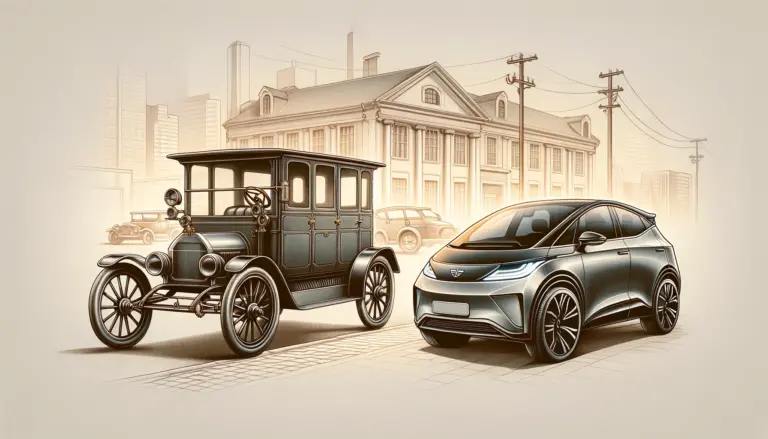
By: Rob Baum, TechFlow CEO
Electric vehicles (EVs) might seem like a modern innovation, but they actually date back over a century. I was astounded to learn about this rich history, and if you’re as intrigued as I was, you’ll enjoy this brief journey through the evolution of EVs.
The Emergence of EVs
At TechFlow, our involvement with electric vehicles (EVs) has led us to delve into their historical roots. The journey takes us back to 1890 when William Morrison of Des Moines, Iowa, developed what is recognized as the first successful electric car in America. Capable of transporting six passengers at speeds of up to 14 miles per hour, Morrison’s vehicle was a significant breakthrough. By the early 20th century, EVs accounted for a substantial one-third of all vehicles, competing with steam and gasoline engines – and even the prevalent horse-drawn carriage. Despite a resurgence in interest, EVs comprise less than 2% of vehicles on U.S. roads today, but the numbers are gradually increasing.
Urban Popularity and the Shift to Gasoline
Initially favored for their quiet operation and ease of use, EVs were particularly popular among women and ideal for urban driving, given the poor road conditions outside city limits at the time. Innovators like Ferdinand Porsche and Thomas Edison also dabbled in electric transport, with Porsche developing the first hybrid car in 1898 and Edison working to improve EV batteries.
However, the advent of Henry Ford’s Model T in 1908, which was affordable due to assembly line production, marked a shift towards gasoline power. The introduction of the electric starter in 1912 further sealed the fate of electric cars, making gasoline vehicles more convenient and drastically undercutting the cost of EVs.
The EV Resurgence
It wasn’t until the 1990s, driven by environmental concerns and California’s ambitious legislation, that EVs began resurfacing. Despite the initial failure of GM’s EV1, which faced high production costs, the Toyota Prius gained significant traction after its global release in 2000. This was bolstered by rising fuel prices and increasing environmental awareness.
The real game-changer came in 2006 with Tesla’s introduction of an electric sports car capable of over 200 miles per charge, rekindling widespread interest in EVs. Today, with soaring gasoline prices and rapid technological advancements, over half of new car buyers consider electric or hybrid vehicles, signifying a robust comeback.
TechFlow's Role in the Future of EVs
The Department of Defense (DoD) is also making significant strides in adopting EV technology to reduce its carbon footprint, spurred by the tactical advantages of EVs and the ongoing global climate change discussions. Recognizing the role of vehicle emissions in exacerbating climate change, the DoD has committed to transitioning all non-tactical vehicles to EVs by 2035. This move is part of a broader strategy to combat climate change, as outlined in an executive order by President Biden, aiming to make the federal government carbon-neutral by 2050.
TechFlow is playing a crucial role in this transition. Our recent success memorandum from the Defense Innovation Unit (DIU) enables the installation of our unique, self-sustaining EV charging solutions across over 800 U.S. facilities. The TechFlow EV charging solution is capable of “Dual Use” charging of both government-owned and personally owned vehicles in compliance with regulatory standards using the same equipment, thus eliminating the need for redundant infrastructure to charge a wide range of vehicles on military installations. This innovative infrastructure is set to support the DoD’s shift to clean energy, providing robust, efficient charging options crucial for the sustainability of military operations and the security of our nation.
Conclusion
Thomas Edison’s early belief in electric power seems prophetic now as we witness the technology’s resurgence. At TechFlow, we’re committed to supporting this shift by developing electric charging infrastructure through our projects with the Department of Defense, federal civil agencies, and the commercial sector. Our work is crucial in adapting to and propelling the demand for sustainable transportation solutions.



